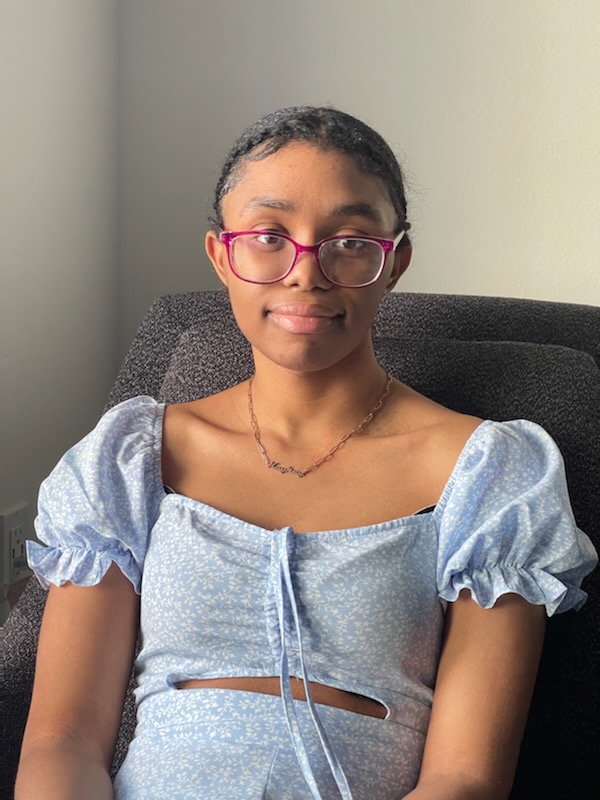White Supremacy Is Hurting America-Part two of T.E.I.I.T.H
- Michaela Hayes
- Aug 11, 2025
- 3 min read
I know religion can be a tender, even painful topic, especially Christianity. Some people don’t believe in the Bible or God at all. Sometimes that’s because of religious trauma, sometimes it’s just because they were never taught to believe. All of that is completely valid and respected here.
But for me personally, the Bible helps me understand the world and why it is the way it is. You might think that sounds like nonsense if you don’t share my faith, but if you stick around, I’ll show you how I see it through my lens.
WHAT DO YOU BELIEVE?
Now, if you’ve ever opened a Bible, maybe you have a favorite verse. It’s okay if you don’t, I’ll read you a few verses and explain how I connect them to the bigger picture.
Matthew 6:24- No one can serve two masters. Either you will hate the one and love the other, or you will be devoted to the one and despise the other. You cannot serve both God and money.
Another one is…
Exodus 34:14- For you shall worship no other god, for the Lord, whose name is Jealous, is a jealous God.
Or…
2 Corinthians 11:14- And no wonder! Even Satan disguises himself as an angel of light.
You might be asking me, “What does this have to do with white supremacy?”
ARE YOU RED OR GREEN?
Good question, curious one, first, let’s define it.
White supremacy is the belief that white people constitute a superior race and should therefore dominate society, typically to the exclusion or detriment of other racial and ethnic groups.
Another warning if you missed the first. This is not meant to divide any race or gender or force a belief. These are just my reflections with some historical facts.
IT’S RAINING, IT’S POURING
Let’s go over another example: bathroom segregation. Jim Crow laws enforced separate restrooms for Black and White people in many states, and some public places would prevent Black people from using the restrooms at all.
While this law doesn’t exist today, the echoes of it remain everywhere. In workplaces, restaurants, schools, hospitals, and so on. It might not be as obvious as it was back then, but like a virus, it lingers.
It especially affects us in the entertainment realm. I’ll give you a famous example: Elvis Presley. Elvis is best known as the king of rock ‘n’ roll, but was he really the king?
Early rock ‘n’ roll didn’t start with Presley. It was born from Black rhythm and blues, gospel, and blues performed by artists such as Chuck Berry, Little Richard, Sister Rosetta Tharpe, and more.
Elvis acknowledged and credited many of his influences publicly by saying things like, “Rock ‘n‘ roll was here a long time before I came along, and nobody can sing that kind of music like the colored people.”
He would even cover songs like Arthur Crudup’s ‘That’s All Right’ and Big Mama Thornton’s ‘Hound Dog.’ Not until he performed those covers did they become global hits, while he gained fame and fortune, the original Black artists received little to no compensation or recognition. Vanity Fair reports that Thorton once claimed, “I got one check for $500 and never saw another.”
My question for you: Was he truly the king of rock’n’ roll, or was he easier for America to accept because of his race?
I’ll fast forward to today and give an example of how white supremacy still plays a role. Victoria Monét has been contributing to the music industry for a long time, but only recently has she been recognized by winning three Grammys.
Monét has famously written for her friend Ariana Grande. While Monét just won Grammys, Grande was widely celebrated, but her fame did not come without criticism of her appropriating Black culture. Even though she was heavily criticized, she was also heavily supported.
Whether she was simply inspired or it crossed into appropriation, it helped her rise. Meanwhile, Monét was struggling to get her name out there as a respected artist.
AND THE STONE KEEPS ROLLING
The entertainment industry relies heavily on Black culture to succeed. In my next post, I will discuss how this plays out in the movie industry, where stories from marginalized people are often misinterpreted and appropriated, and how white supremacy continues to shape who gets visibility and power. And this, my friends, is far from a blessing.
While reading this blog series, I truly believe you’re on your way to healing, not just for yourself but the world too. Because you, my friend, are a part of this world’s story, whether you believe in a higher power or not.
If you agree with me or not, you know what to do, just keep it respectful. As your big sister, I just want to help you see why America is the way it is today, because America has a lot of healing to do.


Comments